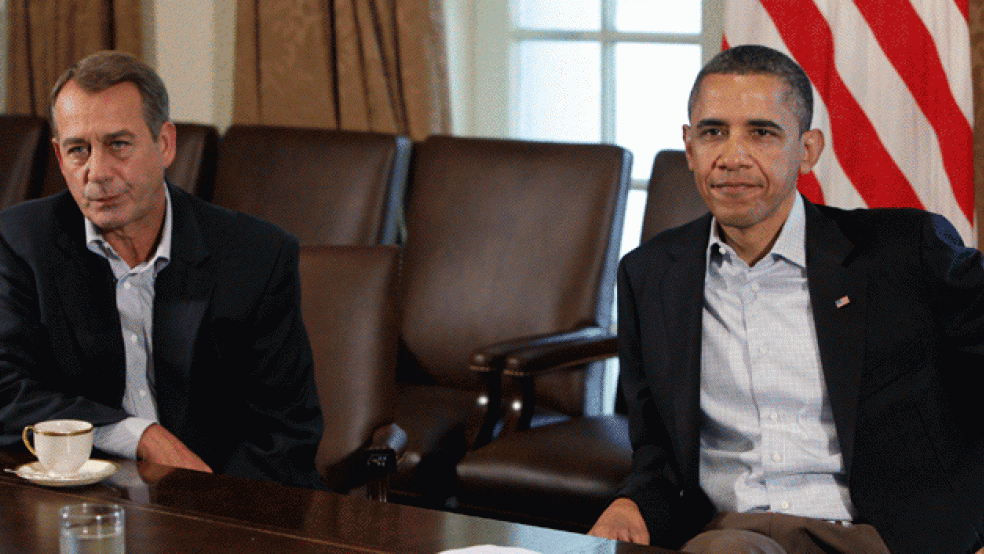House Speaker John Boehner (R-OH) vented on Friday about the government shutdown,  angered by a quote from an anonymous Obama administration official that their side is “winning.”
angered by a quote from an anonymous Obama administration official that their side is “winning.”
“This isn’t some damn game,” Boehner said at a news conference. “The American people don’t want their government shut down and neither do I. All we’re asking for is to sit down and have a discussion and to bring fairness -- reopen the government and bring fairness to the American people under Obamacare. It’s as simple as that. But it all has to begin with a simple discussion.”
RELATED: 12 AWFUL THINGS MORE POPULAR THAN CONGRESS
The explosive anonymous quote that appeared in The Wall Street Journal said that the White House would tolerate the shutdown, which the public largely blames on the GOP, “because what matters is the end result.”
In this case, the result that President Obama seeks involves a reopened government and raised debt ceiling without having to accept Republican preconditions. And while Boehner claims that his priority is to extend the one-year delay in the health insurance mandate that the administration gave to businesses to individuals, this is simply a tweak in messaging for a party that has voted more than 40 times to repeal the 2010 Affordable Care Act.
Boehner might sincerely believe that this showdown is not a game. Obama probably feels the same way. But, let’s be clear, this has a lot of the characteristics of gamesmanship. Just because the economic consequences are massive from a shutdown, that doesn’t mean that both sides are above playing games.
People who seriously play games—anything from golf to Yahtzee—are obsessed with the rules.
For example, the GOP initially tried to defund Obamacare as a temporary measure to keep the government open. It then changed its demands over two bills, each of which still required that Obamacare be delayed. When those failed in the Senate, House Republicans called for a conference committee to reconcile differences between their two chambers. But in doing so, they tweaked the usual procedural rules to stop House Democrats from forcing a vote on a “clean” continuing resolution.
RELATED: POLL SHOWS REPUBLICAN ANGER TOWARD OBAMA SWELLS
“Republicans are still playing games,” Senate Majority Leader Harry Reid (D-NV) groused at the time.
Indeed, the fight boils down to neither side wanting play under rules that put them at a disadvantage. By not playing the game on the GOP’s terms, the Democrats are—for lack of a better term—winning. They present Republicans as being unreasonable, affirming the sentiment that already exists in polls while rejecting the piecemeal spending bills coming from the House.
Indeed, the science of negotiations such as this one is known as “game theory.” One of the landmark texts of that is the 1957 book An Economic Theory of Democracy by Anthony Downs.
It argues that agreements are hard to come by in a polarized political environment because voters will actually penalize politicians who move toward the middle of the ideological spectrum. So even if Boehner doesn’t like the idea of games, his strategy and the administration’s is understandable under game theory. However, that doesn’t make it any better for the U.S. economy.




